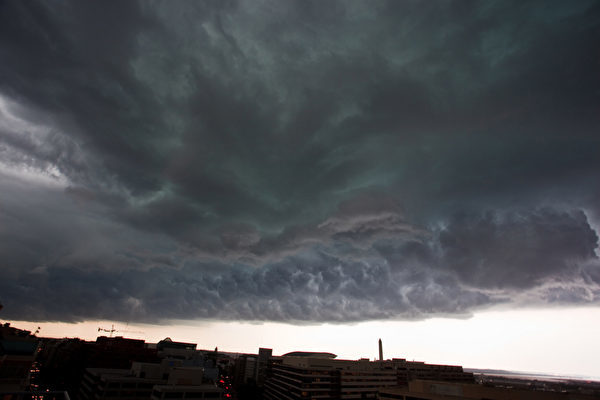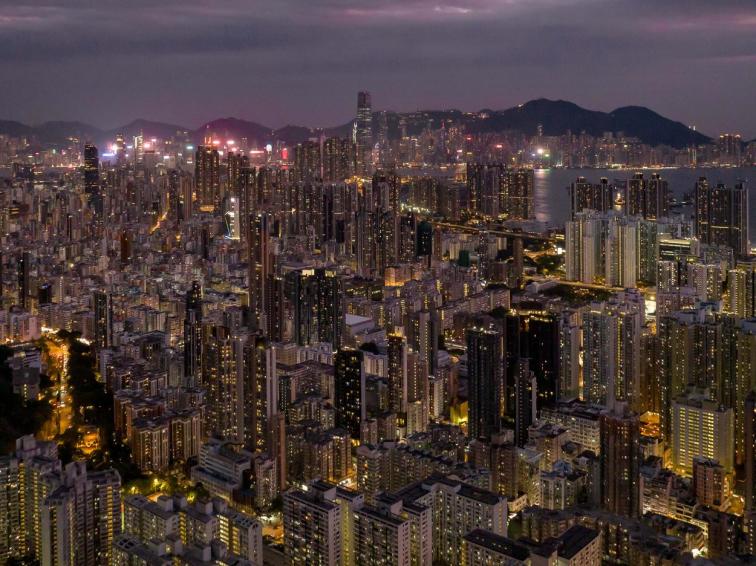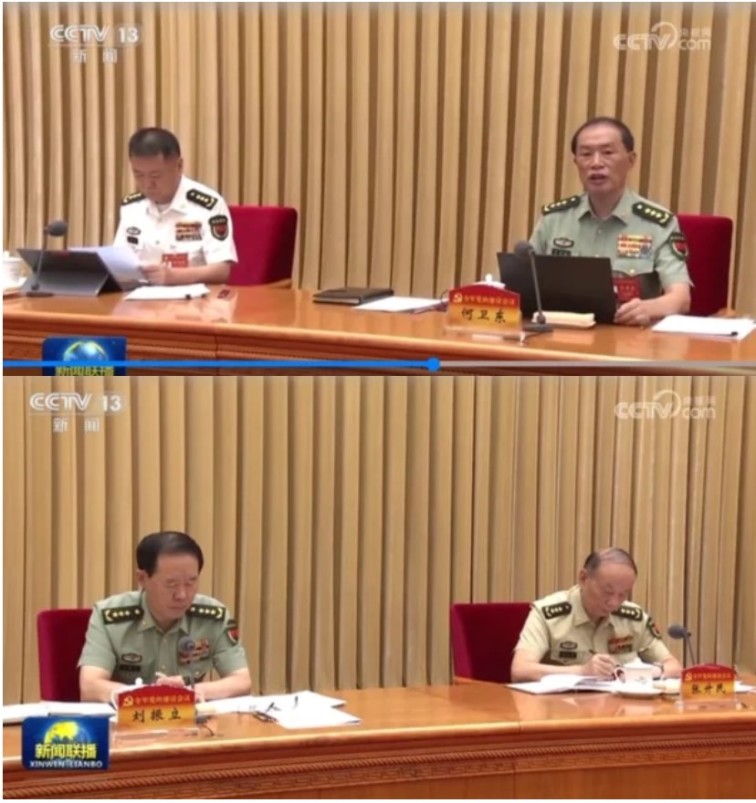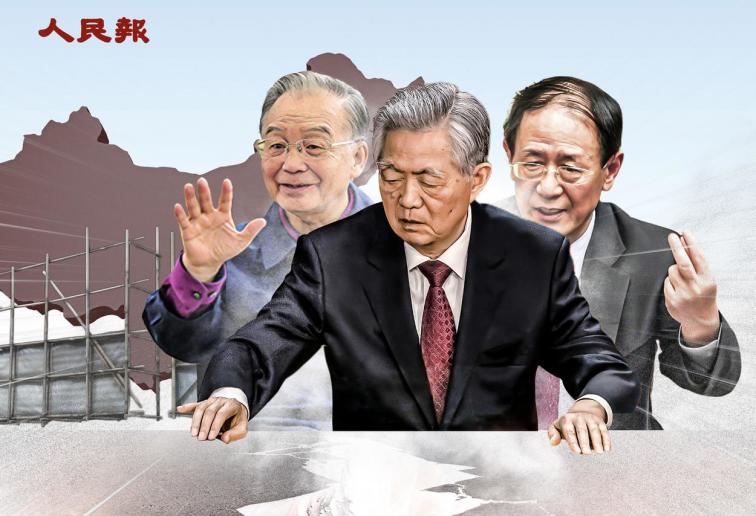March 11, 2023: Senior members of the CCP’s Central Military Commission line up to take the oath at the National People’s Congress. From right to left: Zhang Youxia, He Weidong, Li Shangfu, Liu Zhenli, Miao Hua, Zhang Shengmin. (Lintao Zhang/Getty Images)
[People News] On June 27, 2025, the Chinese Communist Party military faced another significant upheaval: Rocket Force political commissar Xu Xisheng and senior general Qiao Xiangji were both removed from their positions. One was 'taken away' during a meeting, while the other was 'taken away' while leading the meeting. The act of 'holding a meeting' has turned into an ambush for power liquidation.
These two individuals were the successors to the Rocket Force personally parachuted in by Xi Jinping in 2023, intended to replace the 'artillery background' leaders Wei Fenghe, Li Yuchao, and Zhou Yaning. Once regarded as loyal and reliable, entrusted with significant responsibilities, they now face the same fate as their predecessors, being 'taken out' in a sweeping manner. The question arises: Who is orchestrating this latest round of military purges?
1. Only Those Who Have Experienced 'Political Death' Dare to Speak for the Living
Du Wen, a former legal advisor to Hu Chunhua and now a YouTube content creator in exile, recently disclosed on his program that during the pandemic, his property in Inner Mongolia was forcibly auctioned by the court. He expressed his outrage, stating: 'Having been imprisoned and bled, the Chinese Communist Party even spares not a commoner who earns a living by speaking?'
Even more astonishing is that the court that sentenced him to prison, after 'liquidating' him, presented him with a '130G data gift package,' which included confidential materials. He voiced his confusion: 'This is not letting me stop.' This thrush, silenced by the system, must continue to advocate overseas for those puppets within the system who dare not speak out. Only those whose prospects within the system are 'completely dead' dare to speak for the living. Once you wish to survive and maintain your official position, you must learn to keep silent. This fear not only hangs over exiles but also permeates the hearts of high-ranking officials in the Chinese military—every officer feels it.
2. 'Insiders' in the Military Are Also Abandoned
In addition to the purging of the Rocket Force, the Navy is also experiencing turmoil. The downfall of Navy Chief of Staff Li Hanjun has unsettled the entire naval command structure. Former Navy Lieutenant Colonel Yao Cheng (Tan Chunsheng) revealed that the Navy has developed internal cliques, forming 'factions,' which has displeased Xi Jinping and led to a purge.
Yao pointed out that after Xi Jinping assumed power, he appointed a significant number of military officers with familiar backgrounds from the 'Zhejiang Gang', 'Fujian Gang', and 'Shandong Faction' to prevent factionalism and personal interests within the military. The 'Shandong Faction' is believed to be a group of generals promoted by Peng Liyuan and Miao Hua. However, these 'insiders' are now also being purged. Miao Hua's political career has been completely reset, and Peng Liyuan has faded from the military's evaluation landscape, leaving everyone in the military feeling insecure, with 'survival' becoming the only goal.
Reflecting on the path of these purges, Yao Cheng noted that the military reforms of the Chinese Communist Party can be categorised into three distinct waves:
The first wave was the 'anti-corruption purge' following the 18th National Congress, where Xu Qiliang assisted Xi in consolidating military power.
The second wave involved the reorganisation of military regions and group armies, establishing five major war zones, merging the Rocket Force, and utilising internal military intelligence systems to limit interactions among high-ranking officials to prevent military coups.
The third wave occurred after the 20th National Congress, targeting high-ranking officials who were 'unwilling to engage in military action against Taiwan'.
Media figure Zhao Lanjian also remarked that this purge aims to eliminate dissenting voices against military action towards Taiwan. However, Professor Zhang Tianliang countered this by stating that if this were true, the first to be removed should be Zhang Youxia, the Vice Chairman of the Military Commission, who was exposed by U.S. military intelligence for his clear opposition to war against Taiwan. Yet, Zhang remains firmly in his high position, while those below him who have not made explicit statements are the ones being purged, which is clearly illogical.
3. Who is behind this purge? Looking at Chun Doo-hwan provides some clarity.
To understand this purge, it may be beneficial to look beyond China to South Korea, where a dictator, Chun Doo-hwan, may represent the shadow in Xi Jinping's mind.
Chun Doo-hwan, born in 1931, had average academic performance but found his path to success by entering the Army Officer School. He was promoted to lieutenant in 1958 and married the daughter of a general the following year, which significantly advanced his career. During the '5.16 coup' in 1961, he was a staunch supporter of coup leader Park Chung-hee and was seen as a 'foster son,' officially stepping into the inner circle of power.
At this point, Chun Doo-hwan resembled Xu Qiliang during Xi Jinping's rise to power—an experienced military veteran, loyal and manageable. He held crucial roles in the Central Intelligence Agency, the Presidential Guard, and the Capital Defence Command, gaining control over intelligence and military mobilisation, much like Xi Jinping's 'three powers in one' approach—intelligence + security + propaganda.
In 1964, Chun Doo-hwan, along with Roh Tae-woo and others, established a secret organisation called 'Ilshinhoe,' which sought members who were 'from the south, loyal, and capable of uniting.' He personally invested in building relationships and placed members in key military and political positions, creating a hierarchical military faction network. This strategy closely mirrored Xu Qiliang's practice of embedding trusted allies within the military.
In 1979, after Park Chung-hee was assassinated by the head of intelligence during a banquet, Chun Doo-hwan swiftly executed the 'Double Twelve coup,' arresting Army Chief of Staff Jeong Seung-hwa on charges of 'suspected murder of the president,' seizing military control and taking power in a decisive move.
In 1980, he violently suppressed the Gwangju democratization movement; by August, he was installed as president, marking the beginning of an eight-year dictatorship known in Korean history as the 'Fifth Republic.'
However, dictatorships are often short-lived. With a faltering economy and pressure from the United States, Ilshinhoe's front companies like Samsung and LG faced bankruptcy, and his trusted ally Roh Tae-woo betrayed him, forcing Chun Doo-hwan out of power. He ended his life in disgrace, rejected by society.
4. Who is the 'Chun Doo-hwan' of the Chinese Communist Party?
Reflecting on Chun Doo-hwan's fate, it seems that Xi Jinping's greatest concern may be Xu Qiliang, who is close to him. Bill Gertz, a journalist for the Washington Times, has previously disclosed that the two share a close personal friendship and formed an alliance even before Xi came to power. The unpredictability of whether a close friend might become a traitor is a concern for everyone.
Currently, there is a pervasive sense of fear within the military, with personnel remaining silent and cautious. What accounts for the military's extreme obedience? The answer is clear.
Nonetheless, some voices suggest that this purge is orchestrated by Zhang Youxia, with the intention of removing dissenters. Regardless of who is behind the purge, in a system like the Chinese Communist Party, which was built on the principle of 'struggle,' no one can consider themselves safe. △
(First published by People News)










News magazine bootstrap themes!
I like this themes, fast loading and look profesional
Thank you Carlos!
You're welcome!
Please support me with give positive rating!
Yes Sure!